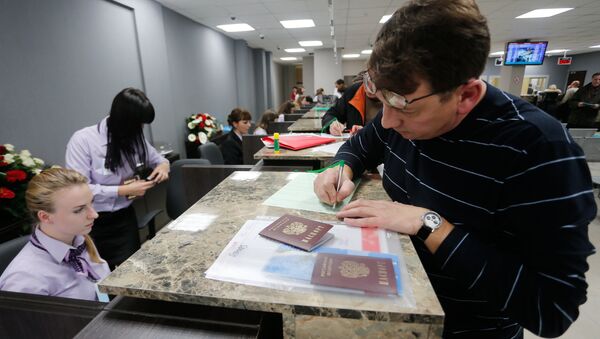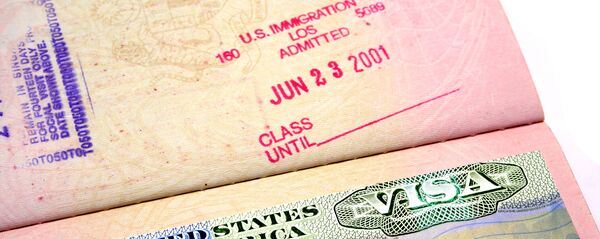According to the US State Department, applicants will have to provide all their addresses, employment and travel history, including the sources of funding for any trips, for the last 15 years.
They may also be asked to list all their social media accounts, phone numbers and email addresses for the last five years. The passwords will not be requested, officials say.
Not all applicants will be required to provide all of the new information requested. For many applicants, answering the new questionnaire will be voluntary, the State Department said.
According to US State Department officials, the additional questions will be asked if "such information is required to confirm identity or conduct more rigorous national security vetting," Reuters reports.
The State Department also said earlier that more thorough questioning will apply to applicants "who have been determined to warrant additional scrutiny in connection with terrorism or other national security-related visa ineligibilities."
If an applicant declines to share their media, travel or employment information, their applications may be delayed or rejected.
"We're continuing to seek better information sharing and better processes with all countries to get a better sense on who these people are who would enter the country," a Department of Homeland Security official told Fox News. "We're trying to have the best information possible from countries to identify the client and understand the background of people who want to do us harm."
"We estimate these changes would affect only a fraction of one percent of the more than 13 million annual visa applicants worldwide," he added.
The Trump administration has also moved to allow more autonomy to consular officials, who can now use the new extended questionnaire to decide who gets a visa without any supervision. This could lead to abuses of power, argues Babak Yousefzadeh, a San Francisco-based attorney and president of the Iranian American Bar Association.
"The United States has one of the most stringent visa application processes in the world," Yousefzadeh said, according to Reuters. "The need for tightening the application process further is really unknown and unclear."
A group of 50 academic and educational groups has sent the State Department a letter requesting to review the new measures, stating that the changes may cause "uncertainties and confusion" and "unacceptably long delays in process" for students hoping to continue their education in the US.
"We are very concerned that if the proposed changes are implemented, international undergraduate and graduate students, scholars, and scientific collaborators may be discouraged from coming to the United States," the letter said, according to Newsweek.






